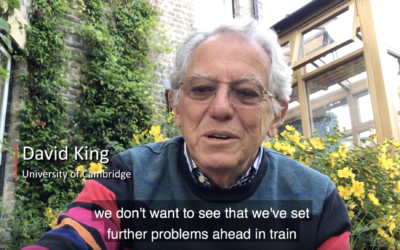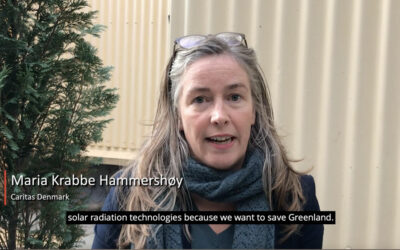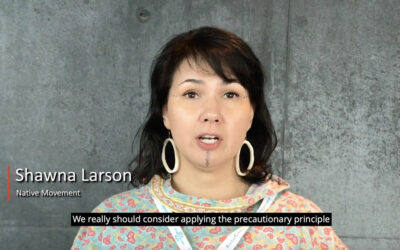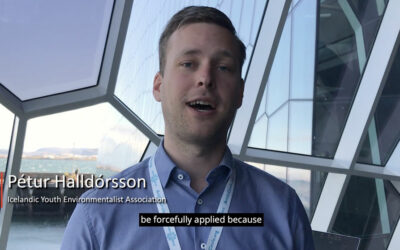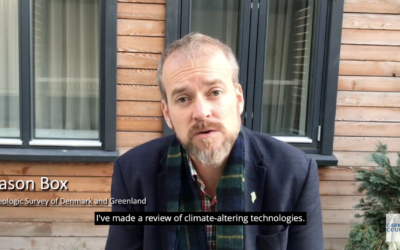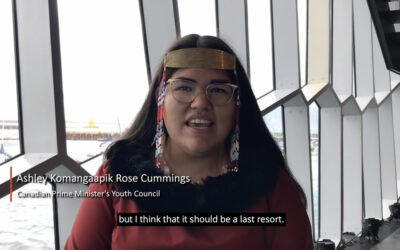Arctic Circle Assembly
10 October 2019, Reykjavík, Iceland
The Arctic plays a key role in the global climate system. This makes the region an area of special interest for those considering the viability of climate-altering technologies, including Solar Radiation Modification and large-scale Carbon Dioxide Removal. In addition, others are considering interventions to engineer or protect ice in order to slow or reverse ice melt. But is there adequate governance in place to protect people and ecosystems should these climate-altering technologies be tested or used?
C2G hosted two sessions at the Arctic Circle Assembly in Reykjavík, Iceland, 10 October 2019. These sessions were aimed at encouraging society-wide discussions about the risks or potential benefits, as well as ethical and governance challenges, of the possible use of climate-altering technologies in the Arctic.
Governing Climate-Altering Technologies in the Arctic – Sir David King
Prominent scientist, Sir David King – former chief scientific adviser to the UK government from 2013-2017 – talks to C2G about how research on climate-altering technologies in the Arctic might be governed. Sir David King joined two sessions hosted by C2G on October...
Saving the Arctic: Ethics, Values and the Next Generation – Maria Krabbe Hammershøy
Maria Krabbe Hammershøy is the Secretary General of Caritas Denmark, and a board member of Justice and Peace Europe. Maria joined a session on "Saving the Arctic: Ethics, Values and the Next Generation" hosted by C2G on October 10th at the 2019 Arctic Circle...
Governing Climate-Altering Technologies in the Arctic – Shawna Larson
Shawna Larson is the Regional Director for Native Movement based in Anchorage, Alaska. She is Ahtna Athabascan from Chickaloon Village on her father’s side, and Supiaq from the Native Village of Port Graham on her mother’s side. Shawna’s current focus is centred...
Governing Emerging Climate Technologies in the Arctic – Pétur Halldórsson
Pétur Halldórsson is chair of Ungir umhverfissinnar (Icelandic Youth Environmentalist Association); sits as a board member of Landvernd, Iceland’s largest environmental NGO; and led the founding of the Arctic Youth Network. Pétur joined a session hosted by C2G on...
Governing Climate-Altering Technologies in the Arctic – Jason Box
Jason Box is a Professor in Glaciology and Climate at the Geologic Survey of Denmark and Greenland (GEUS); a contributing author to the most recent three Intergovernmental Panel on Climate Change (IPCC) scientific assessment reports; and the lead author on recent...
Saving the Arctic: Ethics, Values & the Next Generation – Ashley Komangaapik Rose Cummings
Ashley Komangaapik Rose Cummings is from Pangnirtung, Nunavut, Canada. She is a member of Canada’s Prime Minister’s Youth Council (PMYC) and does extensive work in youth engagement and advocacy for Inuit and youth. Ashley joined a session on "Saving the Arctic:...
Governing Emerging Climate Technologies in the Arctic
Thursday, 10 October 2019, 17:15-18:15, in the room Kaldalón, Harpa Ground Level
The Arctic is warming faster than any other region, with potentially profound consequences for the entire planet. To counter or slow this trend, some scientists are exploring emerging climate technologies, including solar radiation modification (SRM), to lower temperatures by reflecting the sun’s radiation back into space and/or to preserve or increase Arctic sea ice.
These technologies could pose significant risks as well as potential benefits. Thus far, however, government policymakers have been largely unaware of research and potential experiments of these emerging climate technologies in the Arctic. Indigenous groups often say they have not been adequately consulted, and fear risks to their health, ecosystems, and way of life. Existing governance for these technologies is spotty and not well coordinated at the international level.
This session explored which emerging climate technologies researchers are considering with respect to the Arctic, what their effective governance might include, and their implications for the region and, indeed, the world at large.
Speakers

Sir David King
Sir David King is an Affiliate Partner of SystemiQ Limited; Senior Strategy Adviser to the President of Rwanda; Fellow, Downing College Cambridge. King was born in Durban, educated at St John’s College Johannesburg and at Witwatersrand University, graduating with an Honours degree in Chemistry and a PhD. He has received 24 Honorary Degrees from universities around the world. King was the UK Government’s Chief Scientific Adviser from 2000 to 2007, raising the need for governments to act on climate change. He was instrumental in creating the UK’s £1 billion Energy Technologies Institute and created an in-depth futures process which advised government on a wide range of long term issues, from flooding to obesity. From 2013 to 2017 he served in the British Foreign Office as the Foreign Secretary’s Special Representative on Climate Change, making 96 official country visits over this period. He initiated the Climate Change – A Risk Analysis project with China and India over this period and was the thought leader behind Mission Innovation, the $30bn international thrust in Research funding for missing technologies needed to defossilize the global economy. He was Member, the President’s Advisory Council , Rwanda, and Science Advisor to UBS, and he served as Founding Director of the Smith School of Enterprise and the Environment at Oxford University, 2008 – 2012, Head of the Department of Chemistry at Cambridge University, 1993 – 2000, and Master of Downing College Cambridge 1995 – 2000. He has published over 500 papers on surface science and catalysis and on science and policy, for which he has received many awards, medals etc. Elected Fellow of the Royal Society in 1991; Foreign Fellow of the American Academy of Arts and Sciences in 2002; knighted in 2003; made Officier dans l’ordre national de la Légion d’Honeur in 2009.
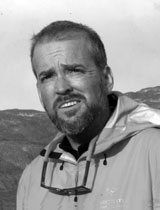
Jason Box
Jason Box, an American living in Copenhagen, is a Professor in Glaciology and Climate at the Geologic Survey of Denmark and Greenland (GEUS). Box has made 30 expeditions to Greenland since 1994 and spent more than one year camping on the ice. He has installed and maintained a network of 40 automatic weather stations on Greenland’s inland ice in expeditions spanning 1994-present. Jason is a contributing author to most recent three Intergovernmental Panel on Climate Change (IPCC) scientific assessment reports and is lead author on recent Arctic Monitoring and Assessment Program (AMAP) reports. He has led more than 20 scientific publications focused on Greenland and Arctic land ice. Jason is an outspoken climate policy advocate and an occasional environmental activist. He founded GreenlandTrees.org to offset his own CO2 footprint and offer this service to others, while engaging Greenland youth and supporting their environmental awareness.
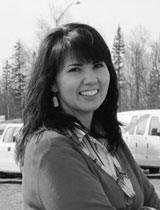
Shawna Larson
Shawna Larson is the Regional Director for Native Movement based in Anchorage, Alaska. She is Ahtna Athabascan from Chickaloon Village on her father’s side, and Supiaq from the Native Village of Port Graham on her mother’s side. Shawna’s previous experience includes spending 13 years with environmental non-profits working on international and local human rights and environmental policies. Shawna’s current focus is centred around Indigenous rights. She has served for more than 10 years on the Chickaloon Village Traditional Council and was selected by the Utne Reader magazine as a young visionary. She has worked extensively in community organizing at a local, national and international level.

Pétur Halldórsson
Pétur Halldórsson is chair of Ungir umhverfissinnar (Icelandic Youth Environmentalist Association) and a board member of Landvernd, Iceland’s largest environmental NGO. Pétur has a background in biology doing research on the Common Loon (Gavia immer), but is currently focused on environmental protection, youth empowerment and the Arctic. Pétur led the founding of the Arctic Youth Network (AYN) and is passionate about facilitating equal opportunities for people of different cultures, regions and backgrounds, by highlighting how climate change, biodiversity and cultural equality are interconnected.
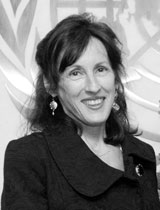
Cynthia Scharf
Cynthia Scharf is the Senior Strategy Director of the Carnegie Climate Governance Initiative. She previously served as the head of strategic communications and speechwriter on climate change for United Nations Secretary-General Ban Ki-moon from 2009-2016. As a senior member of the Secretary-General’s Climate Change Support Team, she helped organized two global UN climate change summits (2014 and 2009) and supported the Secretary-General during the UNFCCC negotiations, including the Paris climate change agreement in 2015.
Prior to her work on climate change, Ms. Scharf worked in humanitarian relief, both at the UN and with international non-governmental organizations. She began her career as a journalist in Moscow covering the collapse of the communist system. Her articles have appeared in the International Herald Tribune, Wall Street Journal Europe, Los Angeles Times, Globe and Mail and Moscow Times. She received her M.A. from Georgetown University’s School of Foreign Service.
Saving the Arctic: Ethics, Values and the Next Generation
Thursday, 10 October 2019, 18:30-19:30, in the room Kaldalón, Harpa Ground Level
Most scientists agree that what happens in the Arctic affects the entire world, as the integrity of the Arctic plays a crucial role in stabilizing the global climate system. With the Arctic heating up twice as fast as other regions on the planet, some scientists are now researching additional efforts to preserve or ‘refreeze’ Arctic sea ice, or to lower temperatures by reflecting the sun’s radiation back into space.
Some see this as a moral imperative for averting catastrophic climate impacts, particularly for future generations. But do the ends justify the means? In seeking to preserve the Arctic with emerging climate technologies, such as injecting reflective aerosol into the stratosphere, brightening marine clouds, or making parts of the Earth’s surface brighter to reflect solar radiation, would the world be opening a Pandora’s Box that could lead to other risks – both known and unknown – for future generations?
What role should ethics and values, both religious and secular, play in this debate? How might this inform governance of these technologies? What do young people, including indigenous youth who will live with the consequences of these decisions, know or think about this dilemma?
Speakers

Ashley Komangaapik Rose Cummings
Ashley Komangaapik Rose Cummings is from Pangnirtung, Nunavut, Canada. She is a member of Canada’s Prime Minister’s Youth Council (PMYC) and does extensive work in youth engagement and advocacy. To this end, Ashley frequently works in the fields of mental health and wellbeing, Inuit rights, climate change, and Indigenous tourism. She was a regional finalist for the Commonwealth Youth Awards for Excellence in Development Work for the SDG of Good Health & Wellbeing in early 2019. She maintains that one of the most important factors of well-being is connection to culture, and for Inuits (who have suicide rates 11x higher than the Canadian average), a large part of this is the land, which is at risk due to climate emergencies. Ashley believes strongly in “nothing about us, without us” and uses her positions with the PMYC, Kids Help Phone Indigenous Advisory Council, and Apathy is Boring board of directors to advocate for Inuit and youth.

Maria Krabbe Hammershøy
Maria Krabbe Hammershøy is the Secretary General of Caritas Denmark, a Catholic aid and development organisation focused on the needs of the poor and on using innovative technologies to solve urgent humanitarian and climate issues. Hammershøy is also on the board of Justice and Peace Europe, a conference of 31 national commissions, which seeks to support initiatives strengthening the common good, including those promoting greater social justice, fortifying peace and stability in Europe and the world, protecting God’s creation and reinforcing universal respect for human rights.
In recent years, her work has focused on promoting the common good and care for the creation. She firmly believes in change as a process of introspection, conversion, motivation and education and says the Arctic holds a special place in her heart.
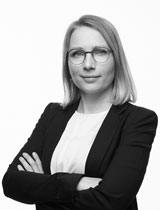
Ilona Mettiainen
Ilona Mettiainen works as researcher at the Arctic Centre at the University of Lapland in Rovaniemi, Finland. She studies science-policy interface and strategic adaptation to climate change in the Arctic. Her recent and ongoing research projects include co-designing a climate service for winter tourism business (Blue-Action: Arctic Impact on Weather and Climate; H2020) and Arctic communities’ viewpoints to the design and governance of geoengineering. Specialized in Arctic issues, Mettiäinen has experience in multi and transdisciplinary research projects. Her other fields of expertise include sustainable Arctic tourism, Arctic human geography, and collaborative planning methods. Lately she has been increasingly working with visualization of social science and science communications.

Sir David King
Sir David King is an Affiliate Partner of SystemiQ Limited; Senior Strategy Adviser to the President of Rwanda; Fellow, Downing College Cambridge. King was born in Durban, educated at St John’s College Johannesburg and at Witwatersrand University, graduating with an Honours degree in Chemistry and a PhD. He has received 24 Honorary Degrees from universities around the world. King was the UK Government’s Chief Scientific Adviser from 2000 to 2007, raising the need for governments to act on climate change. He was instrumental in creating the UK’s £1 billion Energy Technologies Institute and created an in-depth futures process which advised government on a wide range of long term issues, from flooding to obesity. From 2013 to 2017 he served in the British Foreign Office as the Foreign Secretary’s Special Representative on Climate Change, making 96 official country visits over this period. He initiated the Climate Change – A Risk Analysis project with China and India over this period and was the thought leader behind Mission Innovation, the $30bn international thrust in Research funding for missing technologies needed to defossilize the global economy. He was Member, the President’s Advisory Council , Rwanda, and Science Advisor to UBS, and he served as Founding Director of the Smith School of Enterprise and the Environment at Oxford University, 2008 – 2012, Head of the Department of Chemistry at Cambridge University, 1993 – 2000, and Master of Downing College Cambridge 1995 – 2000. He has published over 500 papers on surface science and catalysis and on science and policy, for which he has received many awards, medals etc. Elected Fellow of the Royal Society in 1991; Foreign Fellow of the American Academy of Arts and Sciences in 2002; knighted in 2003; made Officier dans l’ordre national de la Légion d’Honeur in 2009.

Cynthia Scharf
Cynthia Scharf is the Senior Strategy Director of the Carnegie Climate Governance Initiative. She previously served as the head of strategic communications and speechwriter on climate change for United Nations Secretary-General Ban Ki-moon from 2009-2016. As a senior member of the Secretary-General’s Climate Change Support Team, she helped organized two global UN climate change summits (2014 and 2009) and supported the Secretary-General during the UNFCCC negotiations, including the Paris climate change agreement in 2015.
Prior to her work on climate change, Ms. Scharf worked in humanitarian relief, both at the UN and with international non-governmental organizations. She began her career as a journalist in Moscow covering the collapse of the communist system. Her articles have appeared in the International Herald Tribune, Wall Street Journal Europe, Los Angeles Times, Globe and Mail and Moscow Times. She received her M.A. from Georgetown University’s School of Foreign Service.
